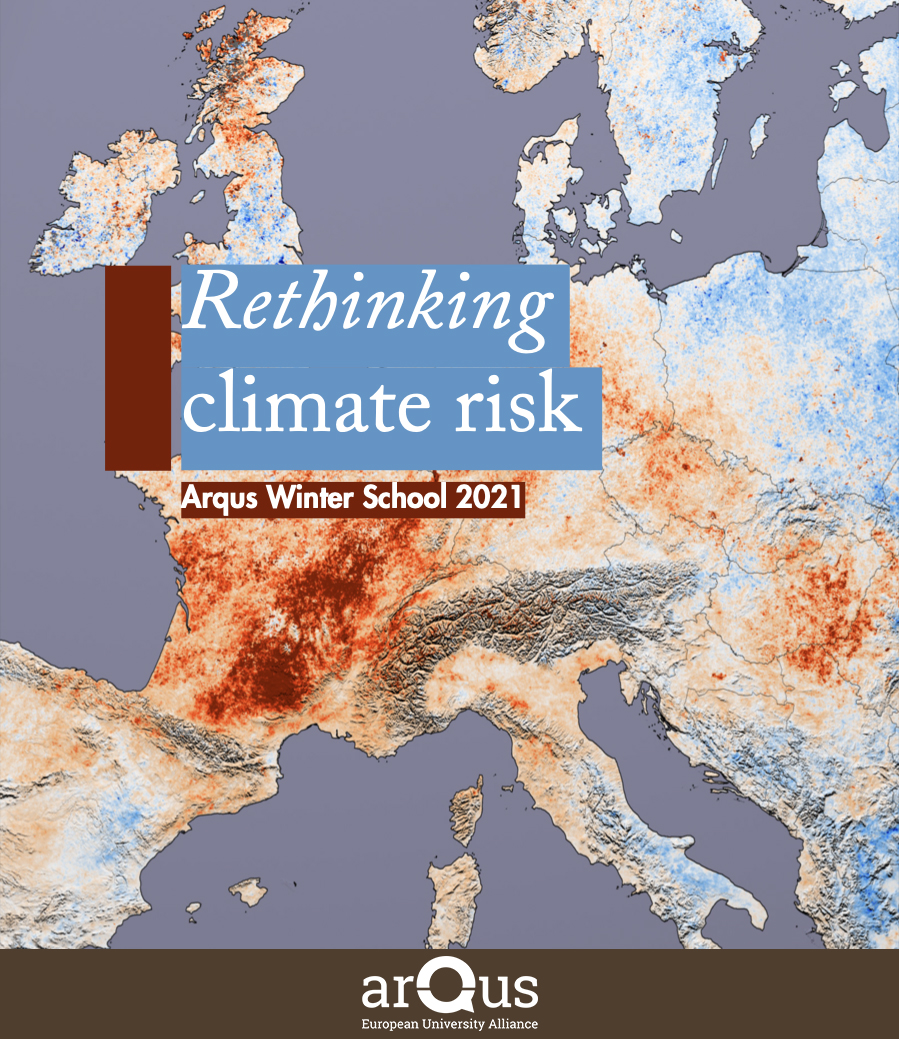The University of Bergen organizes the first Arqus Winter School, dedicated to Climate risks. This activity belongs to Action Line 7, Engaged European Citizens.
The Arqus Winter School is the beginning of a unique educational journey, the Arqus Collaboratory Programme 2021. It will engage the participants in thinking about what it means to be a European Citizen, and how this citizenship is being galvanized around societal challenges; from pandemics to global climate change, or in evolving to a more diverse and mixed society. It is a challenge-based approach to educating critically engaged European citizens, and it is being run in parallel at all seven Arqus universities this semester. The Arqus Collaborative programme is designed to facilitate interaction and learning between students at the different universities at certain junctures, starting with the winter school.
Traditionally, concepts of citizenship have been connected to notions of territory and statehood and the implicit or explicit rights and responsibilities of people who live there. European citizenship necessitates reimagining this concept, moving away from concrete geographical boundaries and toward more abstract ideas and ideals such as peace, prosperity and equality. This radical new way of thinking about citizenship demands conversations about what our rights and responsibilities are as European citizens, and what they should be. In the21st century, active European citizenship necessitates engagement with complex global challenges.
Contemporary universities have the power to make substantive contributions to discourses and models of active, engaged citizenship by developing interdisciplinary, challenge-based and student-led pedagogies that empower students to critically reframe, reflect upon and address the challenges we face today.
Plenary sessions – open to all
Each day the Winter School starts with an open plenary lecture running from 09.00 to 11.00 (Monday’s session will run until 12.00). The sessions will be held on a Zoom platform, convened by Scott Bremer and Jakob Grandin at the University of Bergen.
These plenary sessions are open to everyone. The information on how to log in may be found in the Programme.
For more information, go to Arqus Winter School 2021 or Arqus Collaboratory Programme 2021.
Source of this news.

